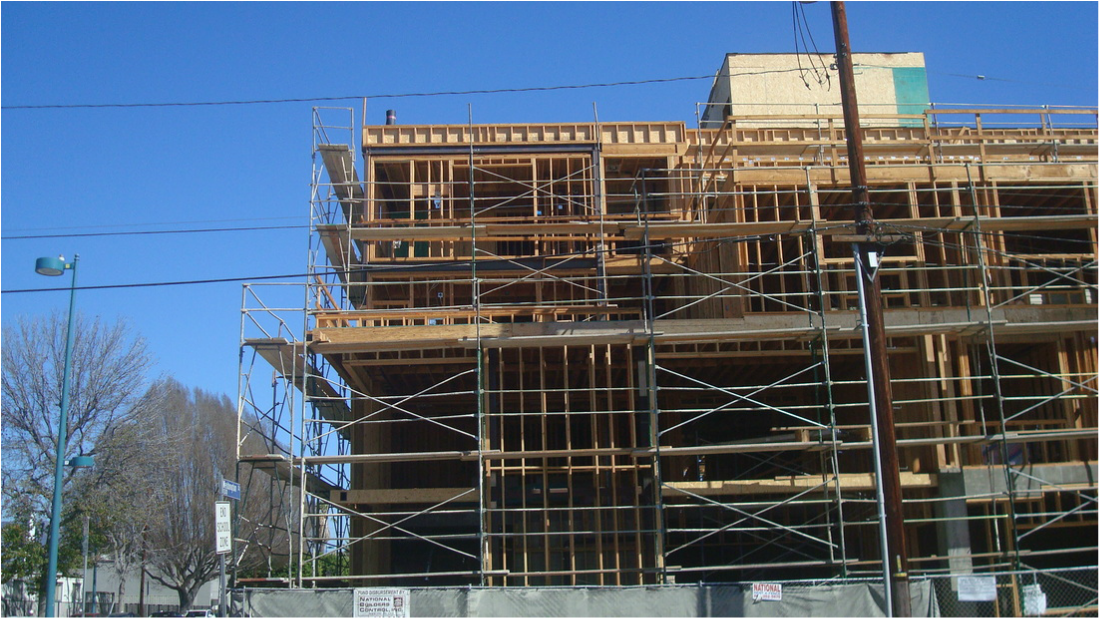THE MAYOR’S SHADY HOUSING NUMBERS
Mayor Garcetti knows his record on housing looks pretty bad. The fact that his administration has bent over backwards to help developers build luxury units while affordable housing becomes ever more scarce has made him the focus of intense criticism. With his bid for re-election coming up next year, Garcetti is anxious to make it look like he's doing something to address the situation.
The first step was to issue Executive Directive 13, entitled Support for Affordable Housing Development. And to follow up, the City published a report in August that has lots of beautiful graphics that show what a great job the Mayor's doing. If you take the report at face value, it looks like we've turned the corner and that everything's going great. Take this statement, for instance.
From July 1, 2013 to June 30, 2016 there were 5,982 affordable units financed or incentivized in the City. Of those, 5,774 were affordable to low-income households, reaching 38% of the Mayor’s 15,000 unit goal.
Wow. That's gotta be good. It says we've created almost 6,000 affordable units since July 1, 2013. Or does it? Let's go on to the section titled Details of Affordable Units....
Of the affordable units financed or incentivized in the City from July 1, 2013 to June 30, 2016, 1,488 were at-risk, low-income units preserved from losing their affordability status.
Okay, then apparently 1,488 of the Mayor's total were actually existing units that the City preserved. So even though that brings us down to about 4,500 new units, that's still not bad. And we should encourage the Mayor to preserve affordable units, since his policies have led to thousands of units covered by the rent stabilization ordinance (RSO) being taken off the market.
And since we're talking about RSO units, why don't we take a look at how many we've lost in recent years. According to a report issued by HCIDLA in April of this year, from 2013 through 2015 over 2,600 rent stabilized apartments were taken off the market under the Ellis Act. In many cases the landlords who invoked Ellis were encouraged to do so by the generous entitlements that the City hands out to developers looking to squeeze more money out of their property.
So if we subtract the 2,600 RSO units lost under Ellis from the remaining 4,500 units that Garcetti's crowing about, that brings us down to a net gain of 1,900 new units. Suddenly the Mayor's housing numbers ain't looking so good. But if you've got the stomach for it, let's keep going....
Beginning in 2014, HCIDLA and the Housing Authority of the City of LA (HACLA) established a goal to provide financing for 300 units of permanent supportive housing (PSH) for the homeless each year. From July 1, 2013 to June 30, 2016, the City has fallen short of this goal, producing on average 227 homeless units per year. However, through new land-use reforms and new revenue sources, the Mayor expects to increase annual production to 1,000 PSH units in the years to come.
Okay, well, at least this part is honest. The City admits that they haven't even been able to reach their decidedly modest goal of creating 300 PSH units per year. Over three years, they've only built 681 units. I guess that's something. Unless you also take into account that in 2015 alone the Los Angeles Homeless Services Authority cut funding for about 2,000 beds that served people needing transitional housing. This wasn't Garcetti's doing. It's part of a shift in the way the federal government is trying to address homelessness. But the upshot is that the number of people actually living on the street has increased by over 1,000 since 2015. So the 681 PSH units the City has built over the past three years aren't even sufficient to accommodate the increase in people on the streets over the past year.
Still, the Mayor says he's going to increase the production of PSH units to 1,000 a year. How? Take another look at the last sentence from the paragraph above.
However, through new land-use reforms and new revenue sources, the Mayor expects to increase annual production to 1,000 PSH units in the years to come.
What new revenue sources? Is the City finally going to start charging developers the same fees that many other major cities charge routinely? Let's hope so. The City Council has been talking about it for years, and still hasn't taken any action on this issue. But the most important phrase in that sentence is "new land-use reforms", because that tells you what the Mayor's real agenda is.
No doubt "new land-use reforms" refers to re:code LA, which is the Mayor's attempt to re-write the City's zoning code. There's no question the code is outdated, but re:code is basically a giveaway to development interests. In spite of the City's claim that they've done extensive public outreach, in reality re:code has been largely written behind closed doors. For the most part, the public workshops have been a PR sham, dealing in vague generalities rather than offering information about how communities will actually be affected. And while the public can attend Zoning Advisory Committee meetings, they haven't been allowed to comment. When the Mayor talks about "land-use reforms" he really means letting developers do whatever they want.
And going back to the Mayor's Executive Directive 13, he says that he's going to speed up the approval process for affordable housing. But he also says he's going to speed up the approval process for all housing development. In other words, he's going to accelerate the pace of reckless overdevelopment geared towards serving the wealthy. He's going to give even more freedom to the anonymous LLCs that have taken thousands of RSO units off the market. He's going to ramp up the construction of apartments that start at $3,000 a month, while telling us the tenants will ride the bus to work. Bottom line, he's going to solve the housing crisis by pushing harder on the same policies that helped create it.
United Neighborhoods for Los Angeles (UN4LA) believes that instead of pushing bad projects through faster than ever, we need to slow things down and start doing some real planning. We also need to bring communities into the planning process so that they can find solutions that will work for their area. The affordable housing crisis impacts all Angelenos, directly or indirectly. Shouldn't we let the people who are most affected by this problem have a voice when it comes to solving it?

